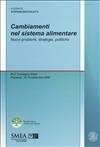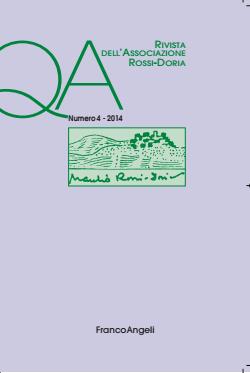Primacy of Institution in the Reformed Cap - Recent years have seen dramatic and continuous reforms of the European discipline of agriculture, both in the first and in the second pillar, in significant connection with the enlargement of the EC to new member States. The process, still far from being completed, concerns many disciplinary areas, including: economics, governance and distribution of powers, as well as relations among individuals. The result is a new model of "plural" regulation, a "flexible droit" as defined with a suggestive imagine by a French author (Carbonnier). This contributions aims to analyse: the influence of reformed Cap on the institutional framework and the governance model of an enlarged Europe in a world market. A prominent character of the reform has been the marked "renationalisation" in domestic implementation of Cap, with the introduction of several policy options having significant distributional implications. Member States have wide margins of manoeuvre to link financial support to subjective and objective prerequisites and to direct benefits towards selected beneficiaries. This flexibility determines a mise en ouvre not uniform in the Member States, with relevant differences with respect to the recent past. Subsidiarity, Complementarity, Partnership, Non-Discrimination, Fair Cooperation have an impact both on the substance of the choices as well on the distribution of competences and powers among public and private actors at national, regional, and local levels. The outcome brings forward an European discipline of agriculture, which is common for Member States but not necessarily uniform. National choices, even in a strongly decoupled frame, might affect the "equal treatment between farmers" as well as "market and competition". But what is the real economic and political meaning for "equal treatment between farmers" as well as for "market and competition"? and how such concerns are related to the specific CAP concerns within a whole objective function? Tentative answers to these questions may come from the comparative analysis, both economic and juridical, of the Institutions of European agriculture, at common, national and local level. Parole chiave: istituzioni, autonomia, diritto comune europeo, leale collaborazione, sistema di governo. Key words: institutions, autonomy, common European law, fair cooperation, governance.







